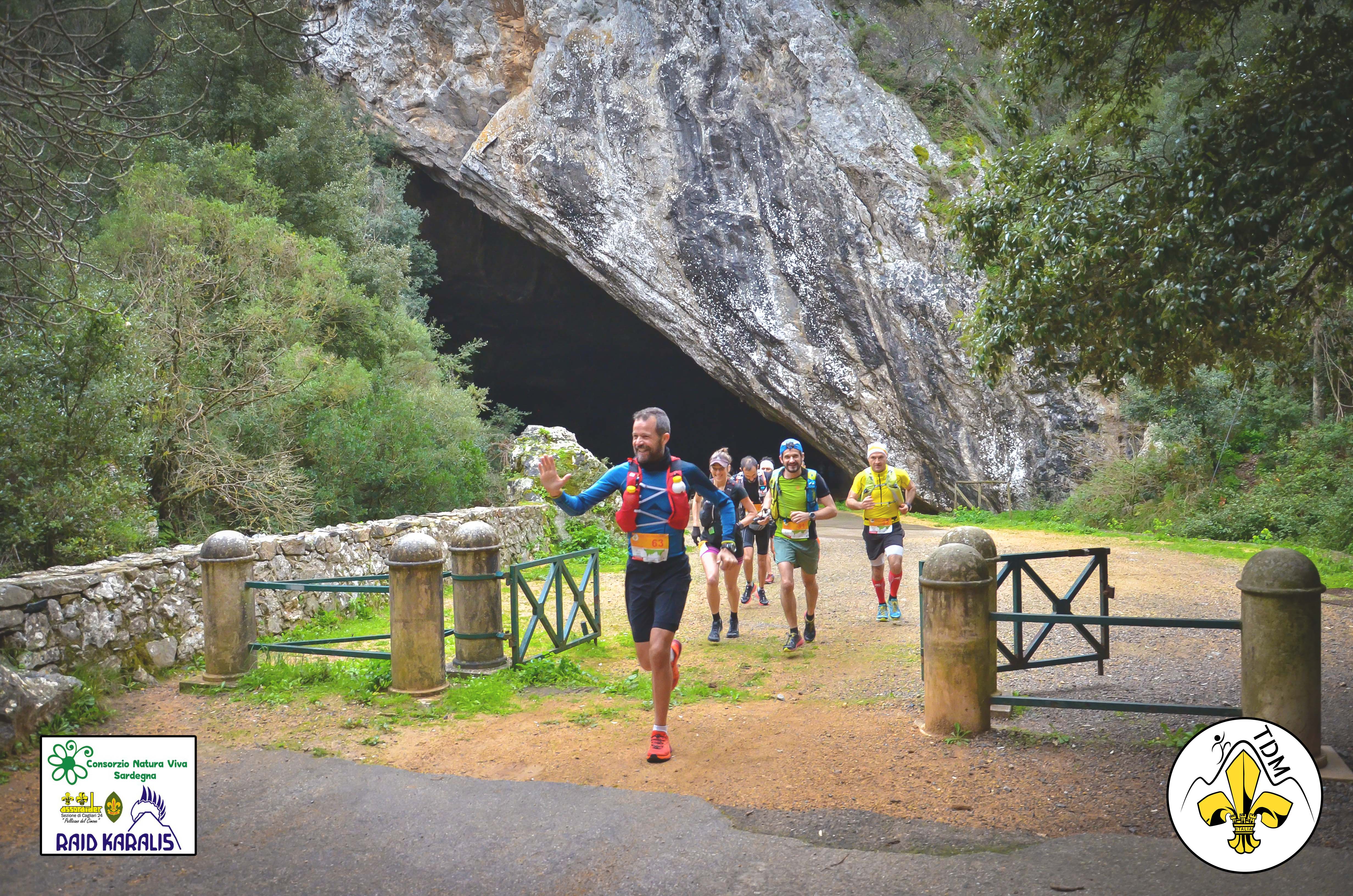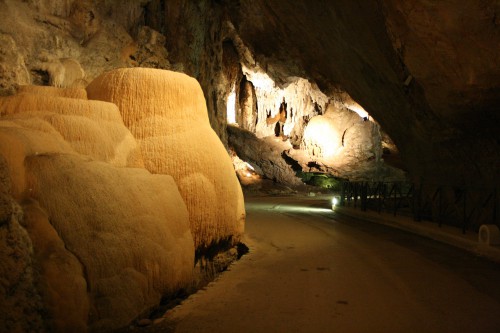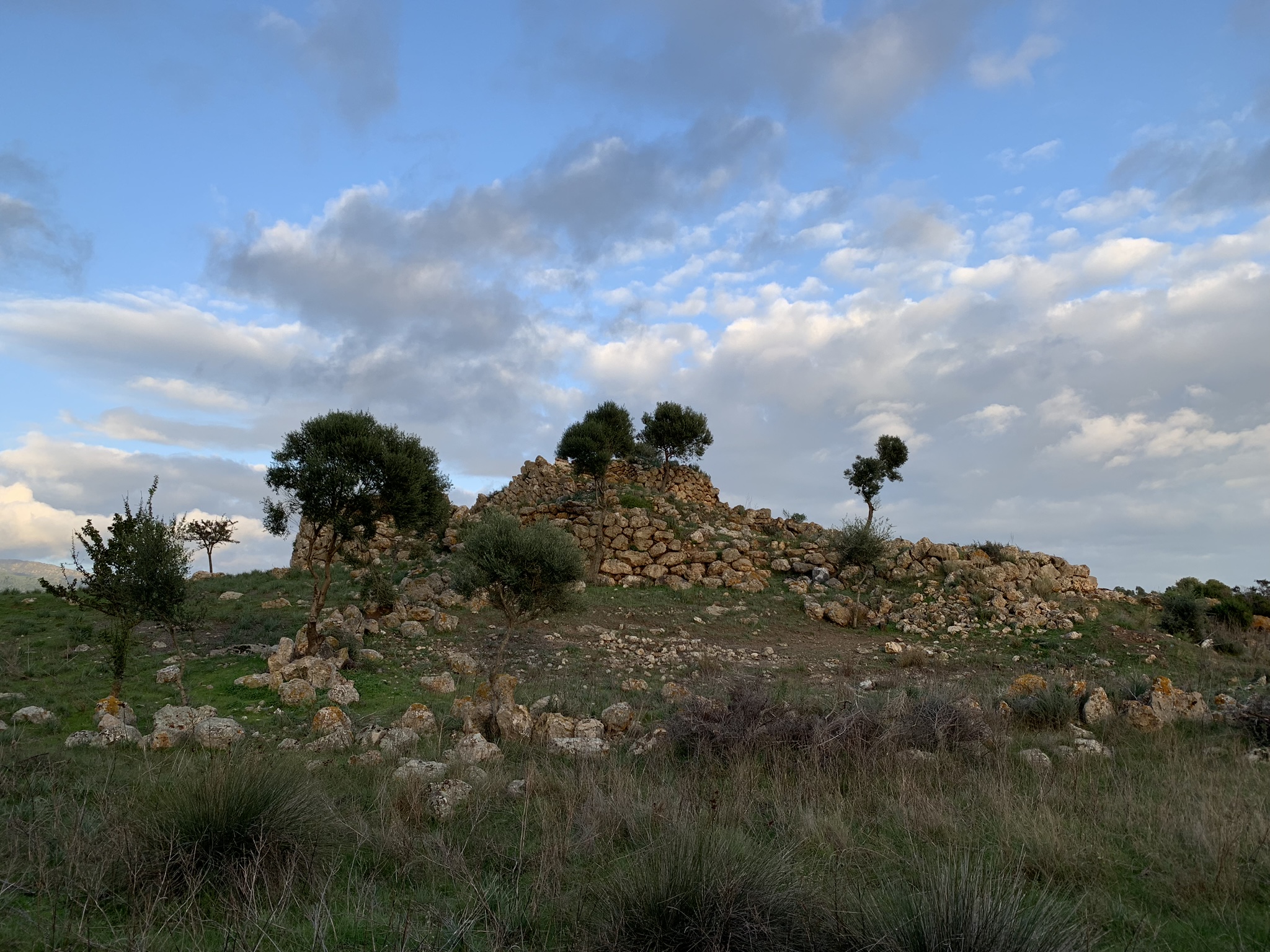Lucky you, athletes: in the first part of the race, you cross the Cave of San Giovanni, a very few km from the starting line…in this way you can get immediately an idea of the natural beauty of this corner of southwest Sardinia. Located in the territory of Domusnovas, nearby Iglesias, the natural cave is a fine example of a karst phenomenon generated by the flow of an underground river and is excavated in the oldest limestone rocks of the island, dated millions of years. The cave was already used in ancient times, as evidenced by the last remains of a megalithic wall, that probably closed the southern entrance during the pre-nuraghic age.
Its uniqueness is due to the presence within its tortuous and sinuous tunnel, of a paved road that extends for all its length of 850 m, making it the longest road-crossed natural cavity in the world! Only two other similar caves exist on the entire planet: one in France (the Grotte du Mas-d’Azil, in the Pyrenees) and one in Australia (in the Grand Arch of the Jenolan Caves, in Oberon).
The road was created in the 19th century in order to facilitate the transport of material from the nearby Sa Duchessa mine. Today it is no longer suitable for vehicles, since it was recognized as a natural monument and subject to restrictions.
Currently the road is used by visitors to admire the beauty of the cave, in which flows a stream, originating from the Oridda valley. Stalactites and stalagmites decorate it remarkably. Large calcareous basins overlapping each other form real rock falls.
Both the North and the South entrances are well-known among the climbers, who chose these walls all year round as an challenging training option!
Good to know:
– entering from the south side on the left opens a cavity called “Su stampu de Pireddu” (Pireddu’s cavity), which is the most interesting active branch, consisting of a series of galleries and narrow tunnels for a total development of 2 km, characterized by the presence of underground lakes. The name is due to an ancient bandit (Pireddu is a Sardinian family name) who, it seems, found shelter there.
– The name of the cave of San Giovanni derives from a cavity in the interior used in the past as a rock chapel dedicated to Saint John and demolished when the construction of the road began. Thus the small church of San Giovanni was built in the immediate proximity of the south entrance.
For information:
Consorzio Natura Viva Sardegna: 0039.3480553309; Email: consorzionaturaviva@gmail.com



